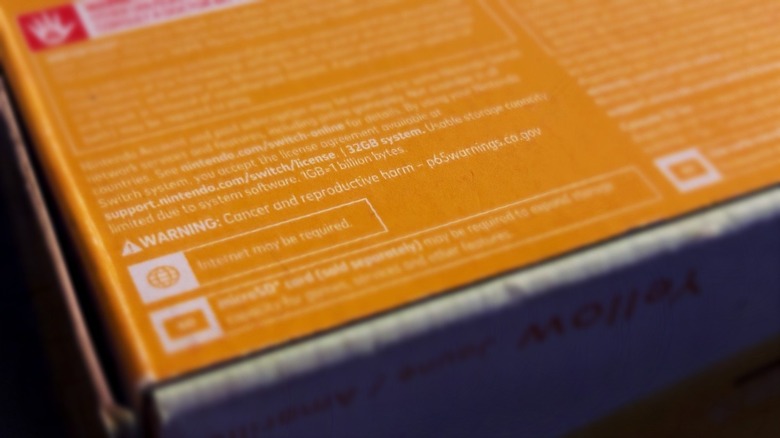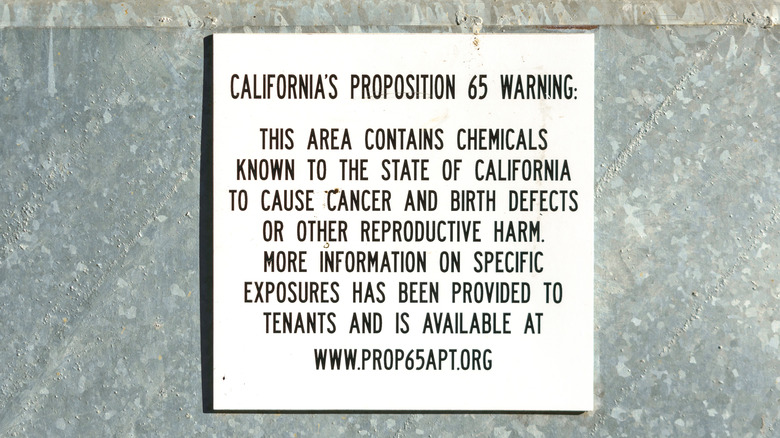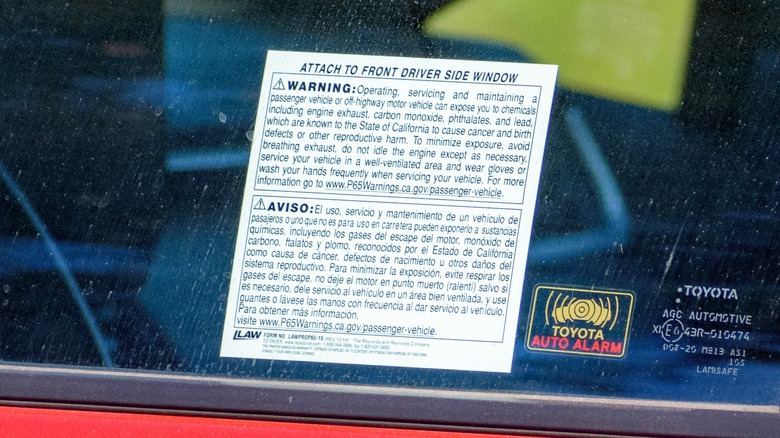What Does California P65 Mean & Why Is It On Your Tech Warning Labels?
Let's say you've just purchased a shiny new piece of tech for yourself, such as a smartphone or a portable game console. You're all set to pop it out of the box and begin using it, when suddenly, you spot something on the box out of the corner of your eye: a warning. Specifically, a warning marked P65, claiming that contact with this product could cause cancer or harm to an individual's reproductive health.
It's pretty alarming to find a warning like this on something you would eat, but if you find it on a piece of technology, it's just kind of confusing. How would playing a video game possibly give you cancer?
The answer is, it probably wouldn't, but the point of this warning — sparked by a California law known as Proposition 65 — isn't to let you know you're at absolute risk. It's merely to inform the public that some of the chemicals and materials in an item's composition may have previously caused detrimental effects in some people in the past, and you should be aware of that. It's a mildly obsessive means of safety checking, but nine times out of 10, you can still use whatever gadget you got without concern.
Proposition 65 warns about the presence of potentially dangerous chemicals
Proposition 65, also known as the Safe Drinking Water and Toxic Enforcement Act of 1986, is meant to keep the public informed of any hazardous chemicals that have made their way into products, in the interest of general safety. If you found that Prop 65 warning on a box of snack cakes, for example, you might think twice about scarfing the entire box in one weekend.
The chemicals targeted by Prop 65 are those that have had a measurable history of inducing dangerous effects in humans, including cancer, birth defects, or some other form of reproductive harm. Since the law was passed, the number of chemicals included in the list has grown to exceed over 900, with new additions every year.
These chemicals can be encountered all over the place in your daily life; in products you purchase, in your home, in your workplace, and more. Even something as simple as the foam seats in your car or your morning coffee could have this label. All companies that conduct business in the California are required to print the P65 warning on their packaging if even one of the listed chemicals are found in their products, no matter what the product may be or how much of the chemical is actually present.
Tech with the label could contain dangerous chemicals
If you find the P65 label on a piece of technology, it means one of the potentially dangerous chemicals from the Prop 65 list is present somewhere in the device's construction. This could include things like the plastic that makes up a device's shell, which could contain potentially harmful BPA, or any chemical dyes used to color it. In theory, regular exposure to these substances could be dangerous to your health.
We say "in theory" because in practice, you're probably going to be fine. The Prop 65 warning label is on pretty much everything that's sold in California, and that encompasses quite a few products. The qualifiers to land a chemical on the warning list are also rather wide-reaching — in the case of potentially carcinogenic chemicals, for instance, any chemical that might cause at least one case of cancer to 100,000 people exposed for 70 years makes the list.
The purpose of the P65 label is to provide consumers with some extra deciding power when purchasing products, though in practice it mostly gives brands a little plausible deniability. In all likelihood, you won't get cancer from just holding and using a piece of technology. If you shove a smartphone in your mouth, that would definitely be dangerous to your health, but you'd likely have other things to worry about before cancer became a concern.


